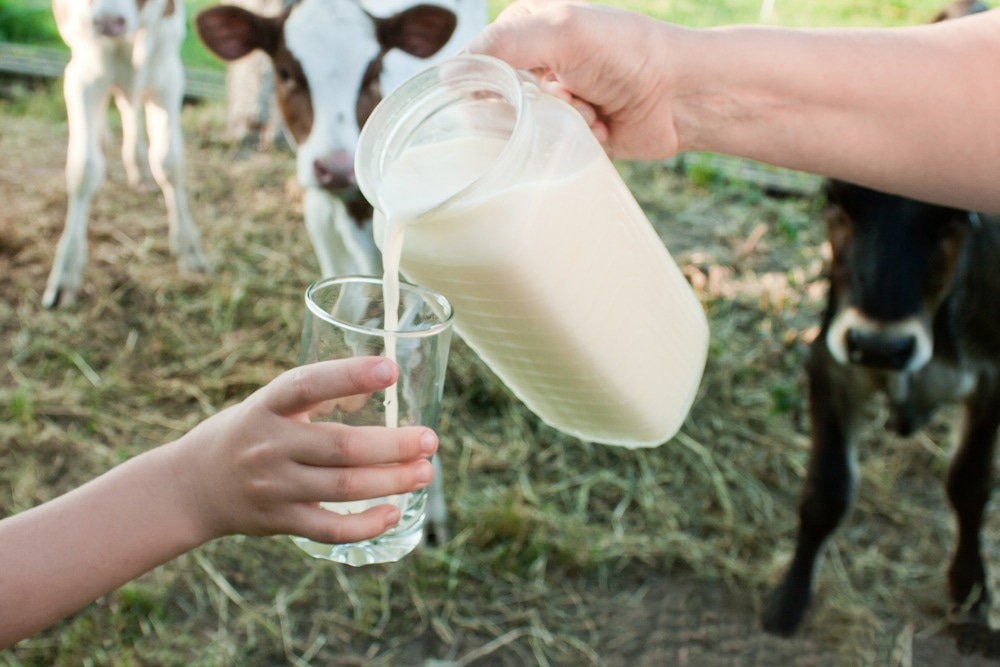
A recent online discussion highlighted a common culinary challenge faced by consumers: the increasing difficulty of sourcing non-ultra-pasteurized heavy cream. The conversation, unfolding over several days in September 2021, delved into various retail and local market avenues, revealing both limited availability in large chain stores and specific preferences for traditional dairy processing methods. This pursuit for less processed dairy is often driven by culinary requirements for specialized dishes, such as the creation of clotted cream.
Consumers embarking on this search frequently initiate their quest by examining offerings at prominent grocery retailers. Initial inquiries into well-known chains, including Whole Foods and Sprouts, indicated that their readily available pickup options predominantly featured ultra-pasteurized brands of heavy cream. This consistent finding presented a significant hurdle for individuals specifically seeking dairy products processed with less intense heat, which are often preferred for their textural and functional properties in traditional culinary applications.
:max_bytes(150000):strip_icc()/Simply-Recipes-Pasteurized-Milk-LEAD-3-resized-2ff804e654bb45c5ba5767baade92a5d.jpg)
The distinction between ultra-pasteurized and simply pasteurized, or even unpasteurized, products emerged as a central theme in the consumer dialogue. Many traditional recipes, particularly those requiring a specific consistency or interaction of dairy fats, are believed by some to yield superior results when non-ultra-pasteurized cream is utilized. The higher heat and longer processing times associated with ultra-pasteurization are thought by some to alter the cream’s composition in ways that are undesirable for certain culinary preparations.
Amidst the challenges of finding the desired cream in mainstream supermarkets, community members shared a range of suggestions. One participant proposed that the Sprouts location on Falls of Neuse might carry Strauss Heavy Cream, specifying, “I *think* Sprouts on Falls of Neuse sells Strauss Heavy Cream, which isn’t ultra-pasteurized. Or at least Strauss makes a non ultra-pasteurized product.” This suggestion pointed to the possibility of specific product exceptions within larger retail environments.

Further broadening the scope of the search, another user recommended exploring more localized retail outlets. Weaver Street Market was highlighted as a potential source for such specialized dairy products. These smaller, community-focused markets often differentiate themselves by offering a curated selection of goods, including those from local producers who adhere to different processing standards.
Farmers markets also emerged as a prominent and often preferred alternative for consumers seeking less processed dairy. These direct-to-consumer venues provide an opportunity to acquire products that may not be available through conventional retail channels. For instance, it was noted that unpasteurized milk could be obtained at farmers markets, typically sold in small glass jars.

However, the acquisition of unpasteurized dairy through farmers markets comes with specific legal and labeling considerations. Due to regulatory frameworks, unpasteurized dairy products are often sold with a disclaimer stating, “NOT FOR HUMAN CONSUMPTION.” This legal requirement underscores the strict regulations surrounding the sale of raw dairy in many jurisdictions, which aim to address public health concerns related to unpasteurized products.
Despite the cautionary labeling, some consumers opt to purchase these products, integrating their own safety practices. One user shared their approach to unpasteurized milk from a farmers market, stating, “I would still boil it of course but nothing like stupid FDA requirements where it has to get to 280 degrees and pretty much kill all the good bacteria.” This perspective highlights a consumer’s balancing act between regulatory standards and personal preferences for what they perceive as beneficial bacterial content.

The same user also recounted personal experiences that informed their dairy choices, mentioning developing a “pretty bad lactose intolerance, especially towards non-fermented dairy such as milk and soft cheeses such as mozzarella.” This background, combined with a history of baking and cheese-making that “would ask for unpasteurized milk,” further explained their motivation for seeking alternative dairy sources and their particular viewpoints on processing methods.
Beyond specialized markets, another conventional grocery store, Wegman’s, was also mentioned as a potential retailer for non-ultra-pasteurized options. While the specific brands or products were not detailed, its inclusion in the discussion provided consumers with an additional avenue to explore in their quest for suitable heavy cream. The breadth of suggestions underscored the fragmented nature of the market for such niche dairy products.

A significant development impacting the local dairy landscape was the announced scaling back of operations for Maple View Farm. A forum participant shared the news, stating, “Maple View is shutting down operations unfortunately (aside from ice cream).” This update was met with regret by consumers who had relied on Maple View for their dairy needs, with one user expressing, “I’m really going to miss their milk.”
Maple View Farm had been a trusted source for many, recognized for its commitment to minimal processing. One user affirmed its quality, noting, “They definitely only pasteurized the required amount and no more.” The cessation of their milk production, retaining only ice cream operations, represented a considerable loss for those seeking heavy cream processed with traditional methods, prompting a search for new reliable suppliers.

In light of Maple View’s change in operations, the conversation naturally shifted to identifying other local dairy producers. Homeland Creamery emerged as a viable alternative for consumers seeking dairy products that are “just pasteurize rather than ultrapasteurize.” Their products were noted to be available at Weaver Street Market, the same market previously suggested for general alternative sourcing.
Furthermore, Homeland Creamery’s products were identified as being accessible in “a few other small stores in the Triangle area,” with a website provided for consumers to locate their purchasing options. This information offered a ray of hope for consumers grappling with the diminishing availability of traditionally processed dairy, pointing towards a sustained local supply chain for these specialized items.
The broader context of the discussion touched upon the scarcity of local dairy producers. One user lamented, “And sadly, there aren’t many other local dairy producers left,” following the news of Maple View’s operational shift. This observation highlighted a trend of consolidation or decline within the local dairy industry, which can limit consumer choice, especially for those with specific preferences for processing methods.
The collective insights shared within the forum illustrated the dedication of consumers to finding specific types of dairy products for their culinary and dietary preferences. It underscored that while major retailers offer convenience, they may not always cater to specialized needs, pushing consumers to explore local markets, specific brands, and community knowledge networks. The dialogue served as a practical guide for navigating a complex dairy market and a testament to the ongoing pursuit of quality ingredients.




